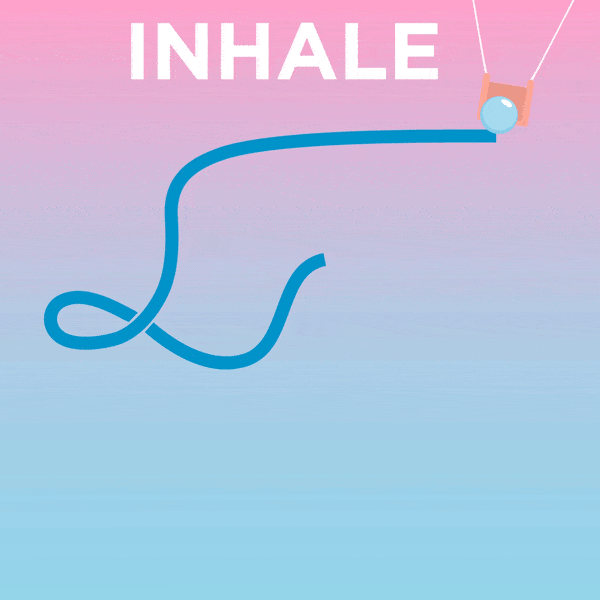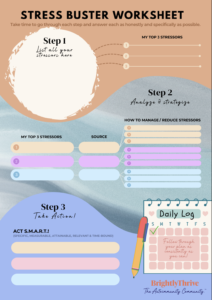
Coping with Autoimmunity: 10 Questions to Spark Radical Change
Feeling like you’re always walking on eggshells with your autoimmune disease? We get it, it’s tough. But guess what? It’s time for us to grab the reins. We’ve put together 10 powerful questions that might just change the game for you.
They’re not just questions; think of them as keys to unlock a more vibrant, thriving life, even with autoimmunity as your constant companion. These questions will make you pause, rethink, and maybe even step a little out of your comfort zone.
But that’s where the magic happens, right? Change begins the moment you dare to ask the first question. So, are you ready to embark on this journey? Let’s do this together, with hope, some humor, and a dash of courage.

Darling, you are fully equipped to ascend to the pinnacle of success. – Moira Rose
1. What Am I Truly Feeling About My Autoimmune Journey, and How Can I Address These Emotions Constructively?
Your journey is unique, filled with ups and downs. Recognize and name your emotions—be it fear, anger, hope, or resilience.
Journaling or talking with a trusted friend can help you navigate these feelings, turning them from overwhelming to manageable.
According to numerous studies, journaling and talking to a trusted friend can significantly help navigate overwhelming emotions by:
- Reducing stress and anxiety: Writing about stressful experiences lowers cortisol levels and improves immune function, while social support from friends buffers against anxiety.
- Increasing emotional processing and self-awareness: Journaling leads to deeper emotional processing and less rumination (or overthinking!), while talking to a friend fosters self-awareness and emotional understanding – and a hearty laugh doesn’t hurt too.
- Fostering resilience and coping skills: Gratitude journaling is associated with increased resilience, and social support strengthens coping abilities in the face of stress.
When was the last time you talked to a friend or a loved one to process emotions, discuss your fears and aspirations?
2. How Does My Mindset Impact My Daily Management of Autoimmunity, and What Shifts Could Lead to Better Outcomes?
Mindset is everything. A positive outlook can transform challenges into opportunities for growth. Consider adopting practices such as mindfulness or gratitude journaling to cultivate a mindset that supports healing and well-being.
Did you know that in the Autoimmunity Community™, our resident mindset guru, Desiree Werland, checks in with us weekly and shares her insights on cultivating a resilient mindset and embracing personal growth? So, if you’re ready to learn how shifting your mindset can impact your daily autoimmune management, consider becoming a BrightlyThrive™ member today by signing up here.
3. In What Ways Have I Allowed My Condition to Define Me, and How Can I Reclaim My Identity Beyond It?
Let’s take a moment to gently remind ourselves: you are so much more than your autoimmune diagnosis. Take a little time to think about what lights up your world – your passions, your proudest moments, and the dreams you hold close to your heart. Immerse yourself in activities that bring you back to the essence of who you truly are, beyond any autoimmune condition.
It’s important to remember that the power to define yourself rests in your hands, not in your autoimmune disease. You have an incredible strength within you, a resilience that defines who you *truly* are.
What are some activities that give you joy and invigorate your spirit?
For many, it’s the simple pleasures that hold the most profound impact: immersing in the tranquility of nature, diving into the pages of a captivating book, or losing oneself in the creative flow of painting, writing, or crafting.
Others find joy in the exhilaration of physical activity, whether it’s the rhythmic pace of a morning jog, the communal energy of a dance class, or the serene focus of yoga.

Yoga or wild girl dance – you get the idea; movement shakes up your health for the good and brownie points if you get to do it with your F.R.I.E.N.D.S!
Then there are those moments of connection—sharing laughter with friends, cherishing quiet family dinners, or volunteering, feeling the warmth of making a difference in someone else’s life.
Joy can also be found in the pursuit of personal growth, learning a new skill, exploring a hobby, or traveling to unknown places, each experience expanding the horizons of your soul.
Ultimately, the activities that bring us joy are as unique as we are, woven into the fabric of our being, reminding us of the beauty and vibrancy of life beyond the routine.
4. What Fears Are Holding Me Back from Making Positive Changes in My Health Routine, and How Can I Confront Them?
Fear, my dear friend, is the unwelcome guest at the party of change. It whispers tales of past failures, chants the risks of the unknown, and dresses up the comfort zone in dazzling lights. But here’s the twist – fear is also a signpost, pointing us toward growth. It’s time to grab that fear by its metaphorical lapels with an attitude and say, “Listen, buddy, you’re not driving the bus anymore.”
First, let’s get to know the enemy. What are these fears? Are they fear of failure, fear of discomfort, or perhaps fear of letting go of the devil you know (hello, comfort food and Netflix binges)? Identifying your fears is like turning on the light in a dark room – suddenly, the monsters aren’t so scary anymore.

This guy ain’t chickenin’ out on this one.
Next, baby steps are the secret sauce. Imagine if, instead of a giant leap, you’re taking a leisurely stroll down Change Lane. Start with manageable goals like swapping out that daily soda for sparkling water or introducing a 10-minute walk into your day. Small victories will build your confidence and prove that, yes, you can teach an old dog new tricks (no offense to any seasoned dogs out there).
If you’d like to learn more about the life-changing impact of building habits that stick for your autoimmune healing journey, check out this blog post by one of our ThriveGuides™, Bridget Ballesteros, and start creating those sustainable goals that will help you thrive your way to unlocking your healing potential!
Now, for the power of the pack. No hero’s journey is complete without a fellowship, right? Seeking support from a therapist or a support group isn’t a sign of weakness; it’s akin to assembling your superhero ensemble. Whether it’s sharing victories, setbacks, or just having someone to say, “I get it,” this camaraderie can turn your journey from daunting to doable.
And finally, embracing vulnerability. Acknowledging your fears isn’t just a step; it’s a giant leap towards overcoming them. It’s like saying, “Yes, I’m scared, but I’m not going to let fear dictate my health story.” Reaching out for help, whether to friends, family, or professionals, is the embodiment of strength.
While fear might never fully vacate the premises, with understanding, support, and a dash of humor, you can certainly put it in its place and make room for positive changes in your health routine.
5. How Can I Cultivate More Self-Compassion on the Days When My Autoimmune Symptoms Flare Up, and Everything Feels Overwhelming?
On those challenging days when autoimmune symptoms flare up, making everything feel overwhelming, it’s crucial to wrap yourself in the comfort of self-compassion.
Recognize that it’s completely normal to have moments of vulnerability; these aren’t times for self-criticism but for self-care. Imagine speaking to yourself with the same kindness and understanding you’d offer a dear friend.
Allow yourself to rest without guilt, indulge in your favorite activities that bring you joy and comfort, and remember, it’s okay to step back and breathe. Your worth is not tied to your productivity or your ability to push through pain.

Here’s a little exercise to calm your breathing – follow the ball, and breathe in through your nose, and out through the mouth.
6. What Are the Sources of Stress in My Life That Exacerbate My Symptoms, and What Steps Can I Take to Minimize Their Impact?
Stress is a known trigger. Identify stressors and strategize ways to mitigate them, whether it’s through time management, setting boundaries, or adopting relaxation techniques like yoga or deep breathing.

You may download our FREE Stress Buster Worksheet to use as your guide. Spend a few minutes to fill out the worksheet to effectively identify your stress triggers and plan your next steps around them. When creating your action plan, consider using the SMART (Specific, Measurable, Achievable, Relevant, and Time-bound) format.
Here’s a guide on how to make SMART action plans:
-
- Specific: What do I want to accomplish, and why? Who is involved, and where will it happen?
- Measurable: How will I measure success? What indicators will show progress or completion?
- Achievable: How can I achieve this goal? Do I have, or can I get, the resources and skills needed?
- Relevant: Does this goal align with my overall objectives? Is it timely and suitable for the current context?
- Time-bound: When will I achieve this goal? What are the short-term steps and deadlines?

Credits: Carol Pan | quotesgram
7. How Can I Build a Support System That Truly Understands and Empowers Me Through My Coping with Autoimmunity?
Community is crucial. Look for support groups, online forums, or local meetups where you can connect with others who understand what you’re going through. Friends and family who listen and offer help are invaluable.
At BrightlyThrive™, we believe that autoimmunity is not just a solitary journey, but an experience that can be transformed through the power of community. Our mission is to redefine the lived experience of autoimmunity by fostering a thriving community of connected individuals. We offer comprehensive resources, insightful education, and expert guidance to equip members with the knowledge and tools needed to navigate their unique path.
 Access the latest research, practical strategies, and effective “hacks” shared by our community to manage symptoms and optimize overall well-being. Our goal is to empower our members with the tools and knowledge they need to take control of their health and live their best lives.
Access the latest research, practical strategies, and effective “hacks” shared by our community to manage symptoms and optimize overall well-being. Our goal is to empower our members with the tools and knowledge they need to take control of their health and live their best lives.
So, if you are or someone you know is looking for a community that understands the unique challenges of autoimmunity, we invite you to join BrightlyThrive, The Autoimmunity Community™ today.
8. What Small, Daily Actions Can I Commit to That Will Foster a Positive and Resilient Mindset?
In the delicate dance of life, how often do we overlook the power of the small steps, the tiny gestures that weave a richer, more colorful pattern into our days? Consider the gentle strength found in a morning affirmation—could speaking kind words to your reflection unlock doors to self-compassion and confidence as you step into the day?
Embracing a hobby, too, is like opening a window to your soul, inviting in the light of creativity and the breeze of capability. How might dedicating time to what you love nurture your spirit and fortify your resilience against life’s whirlwinds?
And what of the humble daily walk? Isn’t it remarkable how a simple stroll can bridge the gap between us and the wider world, offering both a physical and mental pathway to rejuvenation?

Connect with a fellow Thriver and schedule simple activities such as a morning/afternoon walk that you can establish as a habit.
9. How Do I Navigate the Moments of Frustration and Disappointment When Progress Seems Slow or Non-Existent?
Ah, the age-old question of dealing with frustration and disappointment, especially when it feels like you’re jogging in place—or worse, running on a treadmill that’s set on an incline. You’re sweating, you’re pushing, but the scenery? It’s just not changing. We’ve been there, and boy, does it feel like a never-ending episode of “The Twilight Zone.”
First things first: patience, my friend. Patience is not just a virtue; it’s your secret weapon in the battle against the doldrums of stagnation. It’s like being stuck in traffic when you’re already late. Honking your horn won’t clear the way, but patience will keep your blood pressure in check until the road opens up.
Now, let’s talk about acknowledging your feelings. It’s tempting to shove disappointment and frustration under the rug, hoping they’ll just disappear. But let’s be honest, they’re more like that one relative who overstays their welcome at family gatherings. Acknowledge them, offer them a seat, but don’t let them take over the party. It’s okay to feel frustrated; it’s a sign that you care deeply about your progress and goals.
Here’s where the plot twist comes in: shifting focus. Think of it as turning the camera angle from a zoomed-in view of a dirty, worn-out shoe (your current frustration) to a panoramic shot of a beautiful, sprawling landscape (how far you’ve come).
And then, there are the small victories. Oh, the small victories! They’re the unsung heroes of progress. Celebrating them is like collecting coins in a video game; they might not seem like much at the moment, but they add up, and before you know it, you’ve got an extra life or a power-up.

Anybody here can relate? #smallwins
Every step forward, no matter how tiny, is a step away from where you were yesterday. They’re proof that you’re moving, even when it doesn’t feel like it.
10. What Does Genuine Self-Care Look Like for Me, and How Can I Make It a Non-Negotiable Part of My Routine?
Self-care is personal and essential. Identify activities that rejuvenate you—be it reading, taking baths, or spending time in nature. Make these activities a priority, scheduling them into your day as you would any important appointment.
At BrightlyThrive™, we host our monthly challenges that encourage our members to prioritize genuine self-care and make it a non-negotiable part of their routine.
By participating in our monthly challenges, you’ll not only discover new ways to take care of yourself, but you’ll also join a supportive community of like-minded individuals who are on the same journey. You can share your experiences, seek inspiration, and cheer each other on as you prioritize self-care together.
Here’s a sneak peek into what our challenges is all about:
[videopress 72dakMdD]
Remember, self-care is not selfish. It’s a vital practice that allows you to recharge, rejuvenate, and show up as your best self in all areas of your life. So, why not make it a non-negotiable part of your routine?
Coping with autoimmunity is a profound journey that asks us to look inward, to challenge ourselves, and to grow in ways we might never have imagined. By pondering these ten life-changing questions, you’re not just surviving; you’re starting to thrive, learning to navigate your journey with grace, strength, and a dash of humor.

Resources
Writing about emotions may ease stress and trauma. (2011, October 11). Harvard Health.
Heid, M. (2022, October 25). Fear: What It Is, How It Affects Health, and How to Face the Ones You Have. EverydayHealth.com.
Martino, J., Pegg, J., & Frates, E. P. (2015, October 7). The Connection Prescription: Using the Power of Social Interactions and the Deep Desire for Connectedness to Empower Health and Wellness. American Journal of Lifestyle Medicine, 11(6), 466–475.
TAGS:
CATEGORIES:







